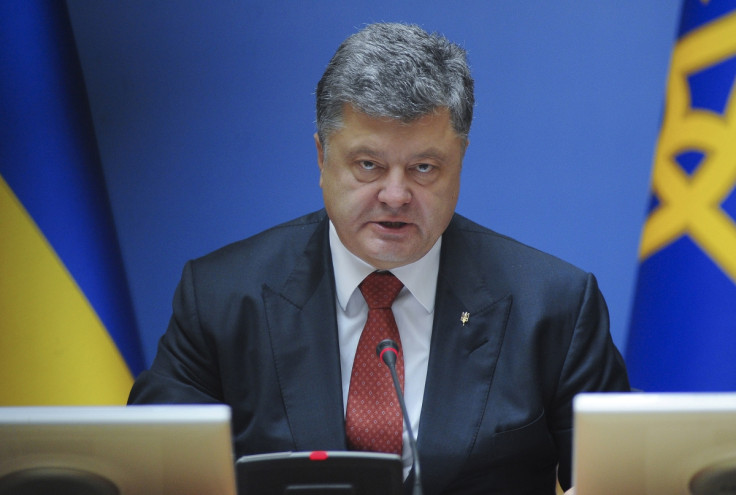Ukraine: BBC boss slams 'shameful' ban on international journalists

Ukraine is facing an international outcry after it banned dozens of journalists from the country –including three BBC reporters and two missing Spanish correspondents – over unspecified security concerns The decree signed by President Petro Poroshenko was deplored by the Committee to Protect Journalist (CPJ) and slammed as "shameful" by BBC foreign editor Andrew Roy.
"While the government may not like or agree with the coverage, labelling journalists a potential threat to national security is not an appropriate response," CPJ Europe and Central Asia program coordinator Nina Ognianova said. "In fact, this sweeping decree undermines Ukraine's interests by blocking vital news and information that informs the global public about the country's political crisis."
BBC correspondent Steve Rosenberg, producer Emma Wells, both British nationals, and Russian cameraman Anton Chicherov were among names included in the sanction list targeting individuals allegedly connected to the conflict in eastern Ukraine and the Russian takeover of Crimea. The document, published on the president's website along with a picture of Poroshenko signing it, was received with incredulity across western media.
The Guardian Moscow Correspondent Shaun Walker tweeted:
Poroshenko signs decree banning lots of journos, including BBC's excellent Emma Wells & Steve Rosenberg. Incredible. http://t.co/hxPM12Hy5L
— Shaun Walker (@shaunwalker7) September 16, 2015Reporter Maxim Eristavi wrote:
You go to bed in a country fighting off an invasion, wake up in a country banning BBC journalists.
War mentality is toxic.
— Maxim Eristavi (@MaximEristavi) September 17, 2015Among the more than 40 journalists and bloggers from various countries are Spaniards Antonio Pampliega and Angel Sastre who went missing in Syria in July and are believed to have been abducted by Islamist militants. Prior to heading to the war-torn Middle Eastern country, Pampliega had reported from Ukraine for national newspaper El Pais.
BBC correspondent Fergal Keane said:
#Ukraine Meanwhile country wanting to enter EU bans 3 BBC journalists. What values are being promoted here?
— Fergal Keane (@fergalkeane47) September 17, 2015Roy, told the Guardian: "These sanctions are completely inappropriate and inexplicable measures to take against BBC journalists who are reporting the situation in Ukraine impartially and objectively and we call on the Ukrainian government to remove their names from this list immediately."
No details were immediately provided on the reasons for the ban beside an unspecified "threat to national interests, national security, sovereignty or territorial integrity". A statement accompanying the decree said the president signed it to expand and prolong existing sanctions related to the crisis in eastern Ukraine in retaliation to a decision by Russian-backed separatists there to hold elections in October.
"The president informed that these restrictive measures will be imposed against more than 400 individuals and 90 entities of Russia and other countries related to the annexation of Crimea and aggression in Donbas," the statement read. Most banned individuals are vocal pro-Russian politicians, activists and media personalities.
© Copyright IBTimes 2025. All rights reserved.




















